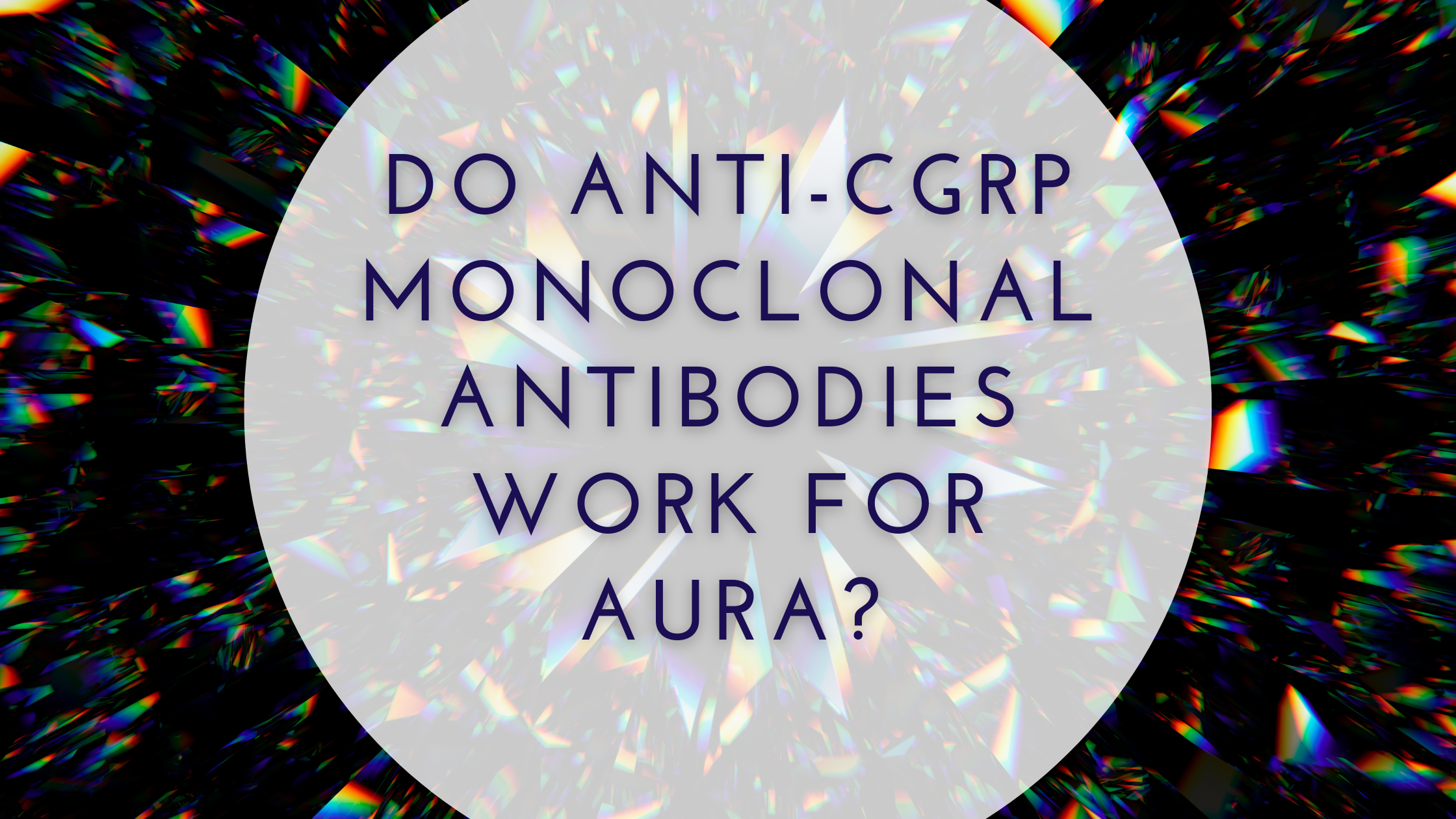Do Anti-CGRP mAbs Work For Aura In Migraine With Aura Patients?
Posted on August 09 2023,

Current evidence suggests that anti-CGRP monoclonal antibodies are unable to directly affect migraine aura frequency or severity due to their inability to penetrate the blood-brain barrier. However, they may reduce headache incidence following aura attacks. Further randomized controlled trials are needed to elucidate the effects of anti-CGRP antibodies on aura frequency and severity.
Source: https://thejournalofheadacheandpain.biomedcentral.com/articles/10.1186/s10194-023-01637-7
I'm going to cut this short with only the summary above because, as I write this, a new study was just published TODAY (August 9th, 2023) disagreeing with the aforementioned. Science moves fast. In the study, it was found that greater reductions in centrally-mediated migraine symptoms like photophobia, phonophobia, and aura were observed compared to headache day reduction.
Yes, you read that correctly. In patients who responded to anti-CGRP mAbs (greater than or equal to 50% response), the number of photophobia, phonophobia, and aura days were LESS than the number of headache days.
As we stated above, anti-CGRP mAbs are large molecules that do not cross the blood-brain barrier.
So how is this possible since molecularly it doesn’t make sense?
Well, there are a few possibilities. Modulating CGRP signaling in the periphery may affect pain signaling to the central trigeminal nuclei and connected brain regions. This then may disrupt the activation of central migraine pathways. Essentially, this suggests the peripheral action of the antibodies may indirectly affect central migraine mechanisms.
It’s also possible that CGRP may play a direct role in regulating migraine symptoms like photophobia, phonophobia, and aura. So, if photophobia and phonophobia are partially peripherally regulated by CGRP, anti-CGRP mAbs may improve these specific symptoms more than headache frequency.
Source: https://journals.sagepub.com/doi/10.1177/03331024231177636
Tue, Mar 11, 25
Biofeedback Types for Migraine Treatment
Biofeedback is a non-invasive, non-pharmacological approach that enables individuals to gain control over physiological processes linked to migraine, such as muscle tension, blood flow, and brain activity. Using monitoring equipment,...
Read MoreMon, Mar 10, 25
Chronic Pain Conditions Associated with Migraine
Chronic Pain Conditions Associated with Migraine Condition Description Association with Migraine References Irritable Bowel Syndrome (IBS) A functional gastrointestinal disorder characterized by abdominal pain and altered bowel habits. Higher prevalence...
Read More


